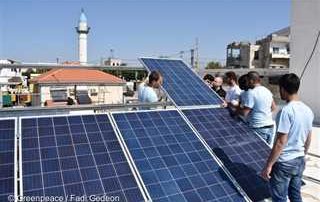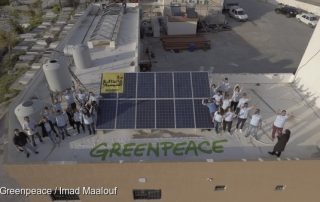How Women Are Expanding Their Horizons With Solar Power
On International Women’s Day, activists and women from the Deir Kanoun Ras el Ain cooperative installed a project to provide solar energy in South Lebanon. The cooperative produces rosewater, apple vinegar, orange sauce, apricot jam, crackers and tomato paste, but recently diesel energy became too expensive to afford, grinding their operations to a halt. Now, with an abundant supply of solar power, the women are saving money and time while reducing their carbon footprint. Photo credit: Greenpeace International



